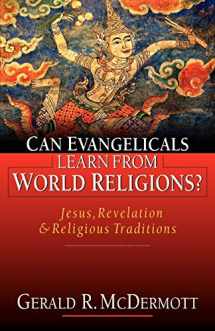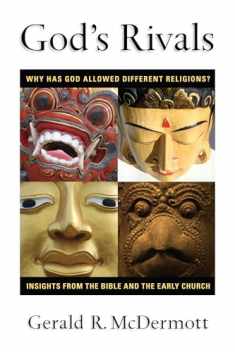
Can Evangelicals Learn from World Religions?: Jesus, Revelation Religious Traditions
ISBN-13:
9780830822744
ISBN-10:
0830822747
Author:
Gerald R. McDermott
Publication date:
2000
Publisher:
IVP Academic
Format:
Paperback
233 pages
FREE US shipping
on ALL non-marketplace orders
Rent
35 days
Due Jul 06, 2024
35 days
from $19.37
USD
Marketplace
from $23.71
USD
Marketplace offers
Seller
Condition
Note
Seller
Condition
New
Brand New! Not overstocks! Brand New direct from the publisher! Ships in sturdy cardboard packaging.
Book details
ISBN-13:
9780830822744
ISBN-10:
0830822747
Author:
Gerald R. McDermott
Publication date:
2000
Publisher:
IVP Academic
Format:
Paperback
233 pages
Summary
Can Evangelicals Learn from World Religions?: Jesus, Revelation Religious Traditions (ISBN-13: 9780830822744 and ISBN-10: 0830822747), written by authors
Gerald R. McDermott, was published by IVP Academic in 2000.
With an overall rating of 3.9 stars, it's a notable title among other
Ministry & Evangelism
(Comparative Religion, Religious Studies, Christian Books & Bibles) books. You can easily purchase or rent Can Evangelicals Learn from World Religions?: Jesus, Revelation Religious Traditions (Paperback) from BooksRun,
along with many other new and used
Ministry & Evangelism
books
and textbooks.
And, if you're looking to sell your copy, our current buyback offer is $0.47.
Description
- A 2001 Christianity Today Award of Merit winner


We would LOVE it if you could help us and other readers by reviewing the book
Book review

Congratulations! We have received your book review.
{user}
{createdAt}
by {truncated_author}




